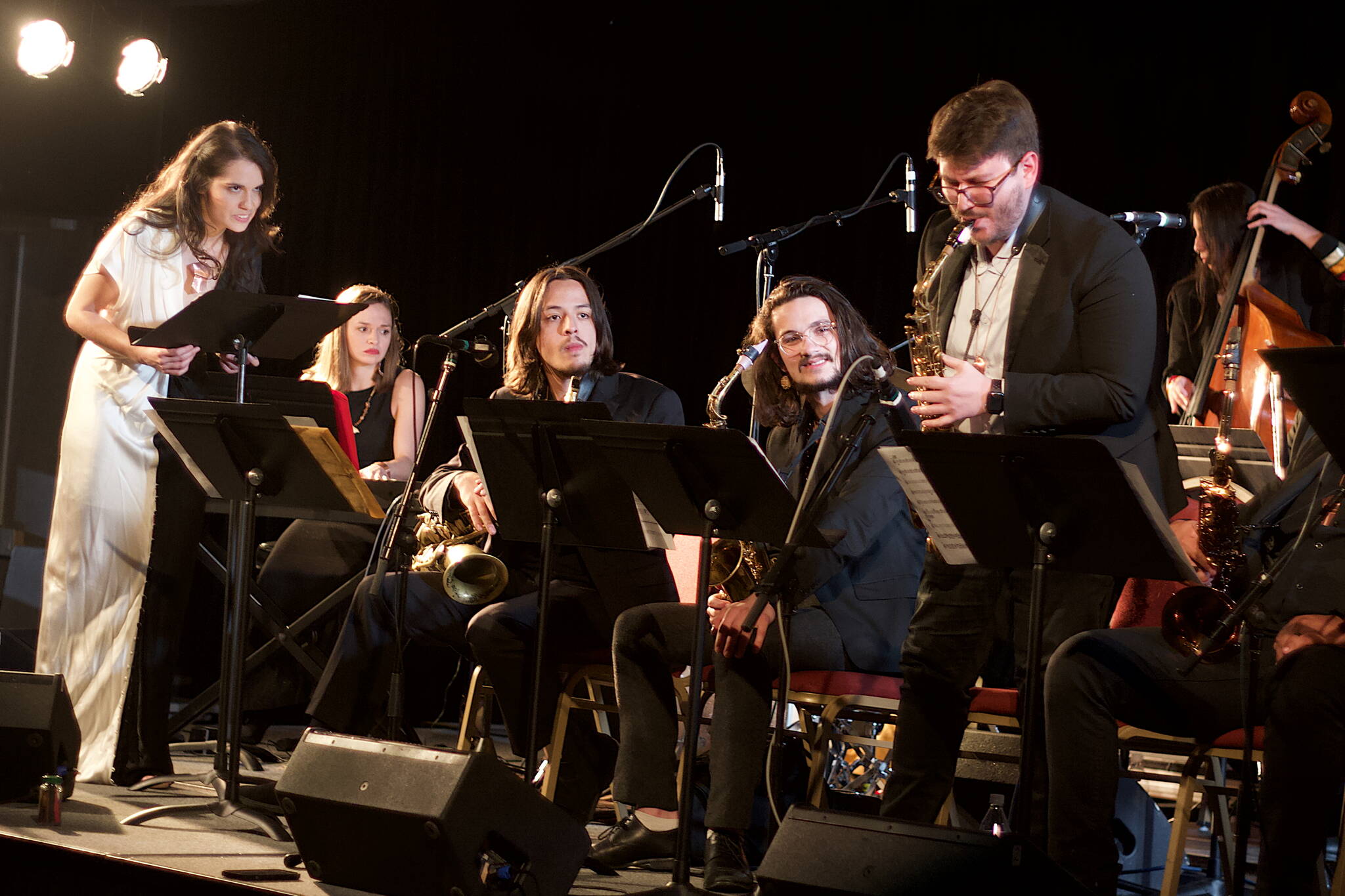A “music minus one” concert featuring an empty red dress at one end of the stage, in recognition of a national day calling attention to missing and murdered Indigenous women, was performed by a 16-member big band whose tribal influences span the Americas to open this spring’s Juneau Jazz & Classics festival Friday night.
The Julia Keefe Indigenous Big Band took the stage at Elizabeth Peratrovich Hall about an hour after hundreds of people gathered a short distance away in front of Alaska State Capitol in observance of the National Day of Awareness for Missing and Murdered Indigenous Women and Girls. The dress hanging near a loudspeaker was a somber reminder of the occasion during the largely playful two-hour concert where, at one point, Keefe quipped “it’s really fun being Indigenous. I like it.”
Keefe, a New York musician who grew up on a reservation in Idaho, is also performing a free concert with her big band at the University of Alaska Southeast on Saturday afternoon, as well as with a quintet of the band’s musicians at Crystal Saloon on Saturday night and a jam session Monday night. She opened Friday’s concert with the song “Water” by Native American sax legend Jim Pepper, one of a few tributes to legacy musicians during a show featuring originals mostly by the band members.
“A huge part of what we try to do is honor those folks whose shoulders we we stand on as musicians,” she said, introducing the song.
All of the band members were wearing Tin’aas (cooper shield in the Tlingit language) made by local students for the visiting musicians who performed and answered questions Friday morning during a workshop at Dzantik’i Heeni Middle School.
Six members of the band including Keefe are also scheduled to perform Sunday afternoon in Hoonah.
Notable originals during Friday’s concert included the moody three-part DDAT Suite by band co-director Delbert Anderson just before intermission and the finale “Blood Quantum” by Mali Obomsawin, an upright acoustic bassist and member of Wabanaki First Nation at Odanak in Quebec, Canada. Obomsawin led the band in a chant in her Indigenous language of Abenaki during the song, introducing it to the audience by noting ”I’m particularly honored to sing these words in my language” on the day remembering missing persons.
“I think the strategy of genocide, and also missing and murdered people, fall upon us Indigenous women disproportionately” she said. “As I sing this chant and as the band joins me in singing this chant I’d like you to understand the words.”
The meaning of the chant, Obomsawin said, is honoring her people’s matriarchs and grandmothers, and standing ready to face or fight anything that diminishes their health and the health of the community.
This year’s festival schudule, which continues through next Saturday, also features a variety of other events and performers, including three brown bag noontime concerts at the State Office Building, musician master classes on Monday evening at UAS, classical performances by nationally acclaimed musicians Sunday and Tuesday nights, and blues master Phil Wiggins hosting a music cruise Friday night and dance party to close out the festival Saturday night.
• Contact Mark Sabbatini at mark.sabbatini@juneauempire.com.

